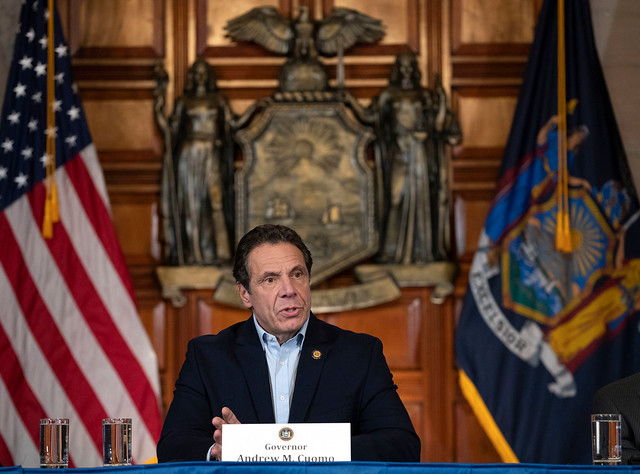Cuomo, State Lawmakers Agree to $175.5B Budget

Cuomo, in a press briefing Sunday, said the budget addressed many of New York’s most pressing issues with an overall spending plan of $175.5 billion. The deal is the ninth straight year a budget has been agreed to by the deadline.
“I think this budget is the strongest, most progressive statement that we’ve made,” Cuomo said.
The final agreement resulted in a permanent 2 percent property tax cap, a statewide ban on single-use plastic bags and publicly financed political campaigns. Additionally, parts of the Affordable Care Act were codified into state law and bail reform was approved, which will eliminate cash bail in 90 percent of cases, according to a press release from Cuomo’s office.
As for education aid, $27.9 billion was secured for districts across the state, a 3.7 percent increase from last year.
The budget also signed off on lowering the middle-class tax rate by $300,000 as Cuomo said he is fighting to combat the loss of the state and local tax (SALT) deduction imposed by the federal government that has hurt high tax states like New York.
On Election Day, every worker will get three hours off, paid leave to vote and $10 million will go to counties for early voting.
Affecting New York City, congestion pricing was agreed to where vehicles traveling south of 60th Street in Manhattan would be charged a toll, as revenue would go toward fixing the crumbling subway system. Each vehicle will only be charged once each day and there is no charge for drivers who remain on the West Side Highway or FDR Drive.
This is the first time since 2010 that Democrats controlled the governor’s mansion, Assembly and state Senate during the budget season.
Cuomo said there were several issues that made this budget more strenuous, including the ongoing assault from the federal government, the Amazon deal that fell through resulting in lost revenue and a $2.3 billion shortfall that was not anticipated.
One reform that didn’t pass was the legalization of recreational marijuana for adults 21 and up. Supporters of legalization said it would bring in revenue to the state and prevent the disproportionate arrests of minorities. Critics have feared it would lead to more drug use by teenagers and claimed marijuana is a gateway to more dangerous drugs.
Cuomo said legislation for that issue would still be discussed going forward this year.
“The political desire is there,” Cuomo said. “I believe we will get it done. It is complicated to come up with a program that does it and protects public safety and does economic empowerment for communities that have paid the price and the best way to do it was not the rush of the budget.”
Municipalities throughout the state have discussed, drafted or approved regulations for the sale of recreational marijuana, and in some cases have passed laws prohibiting its retail sale.
